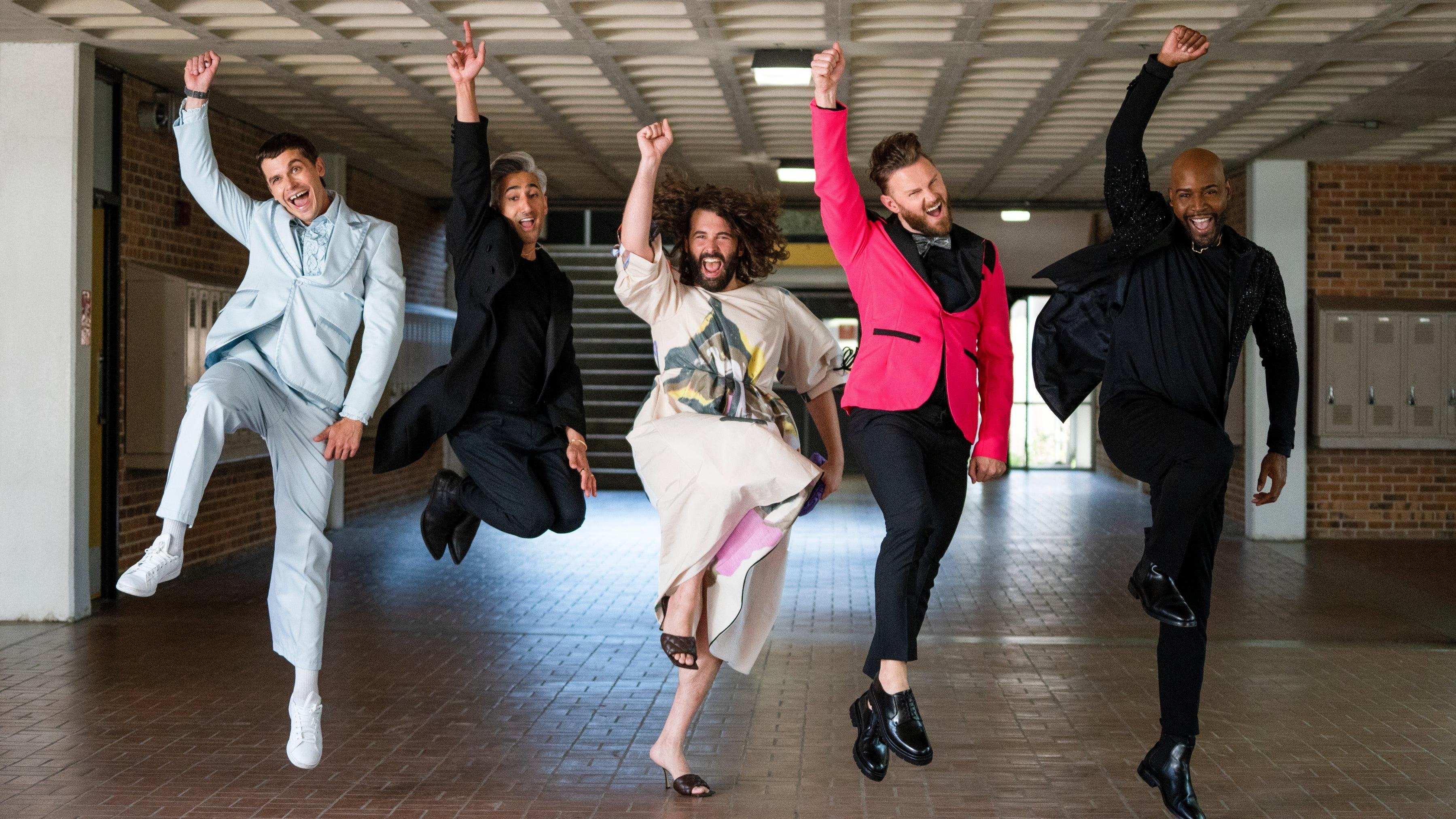Queer Eye’s Fab Five reflects on how their hometowns made them “resilient”
Ahead of the Netflix series’ sixth season, Jonathan Van Ness, Tan France, Karamo Brown, and Bobby Berk tell us how they were shaped by where they grew up

Netflix’s feel-good reality series Queer Eye returns for its sixth season on Friday, December 31. After spending time in and around Atlanta, Kansas City, and Philadelphia, this new batch of episodes finds design expert Bobby Berk, culture expert Karamo Brown, grooming expert Jonathan Van Ness, fashion expert Tan France, and food and wine expert Antoni Porowski setting up shop in Austin, Texas.
When The A.V. Club spoke with Van Ness, France, Brown, and Berk, they told us about this new homebase and the heroes (the show’s term for the people nominated to receive the Fab Five’s guidance and assistance) who call the Texan capital home. But we also wanted to hear about the hometowns of Queer Eye’s stars, and how they relate to them now. Read on for transcribed excerpts from our conversations, and watch the video below for more of the interviews.
AVC: Six seasons in, we have seen you all over the country, even all over the world. But I always keep coming back to this idea of where we’re from. JVN, we’ve gotten to see your hometown a little bit. I think as queer people we have, often, complicated relationships with our hometowns. How do you think your hometown has helped shape you into the person you are today?
Jonathan Van Ness: I would say that it helped me be very resilient. I think it helped me become a very loyal person. I think it helped me become a very positive person. It forced me to use my imagination, to develop a sense of humor, and to find comfort and find creativity when all the other people that looked like me were playing football and wanted to play sports.
When I wanted to play sports, it was like figure skating and gymnastics and interpretive dance. There’s a fundamental difference of interest. And so I think I’ve always just had good practice finding my own way and creating my own path. It was difficult, but I wouldn’t change it.
Karamo Brown: I think it makes us all resilient. It also makes us value the people who see us for who we are. The trauma can sometimes lead you down a path where you learn to love yourself even more, because you won’t allow yourself to not be seen, not be heard. It did that for me. I’m thankful for the experience that I had growing up in Texas and in Florida, but I don’t ever want to go back. [Laughs.] Thank you very much.
Bobby Berk: It caused a lot of trauma for me as a child. I’m sure all of us, as queer people, can understand that. I didn’t fit in [in my hometown]. I didn’t belong there. I remember as a 5-year-old kid, this farmer going [Affects exaggerated Southern accent.] “Boy, I don’t think you belong here, do you? You belong in New York City.” And even as a 5-year-old, I was like, “Right! Right! Get me out of here.”
They always say if you can make it in New York, you can make it anywhere. I’m like, no, girl: If you can make it in Mount Vernon, Missouri, you can make it anywhere. [Laughs.]
Tan France: My hometown did a lot for me. It made it very clear what I didn’t want in life. It made me really resolute about who I was willing to be and who I was definitely not willing to be. And it made me a really determined person. It made me want to fight really hard to be successful, so I could give them a quick “f you” when I was done.
BB: It’s so funny you should say that. I was asked recently [about] the thing that drove me the most to be successful—and it was kind of the “fuck you” to back home. [Laughs.]
TF: It’s not that I hate my hometown. It’s really not. I just want the people who hated everything that I represented to be able to watch me thrive. And now I can look at them and say, “I was the problem?”